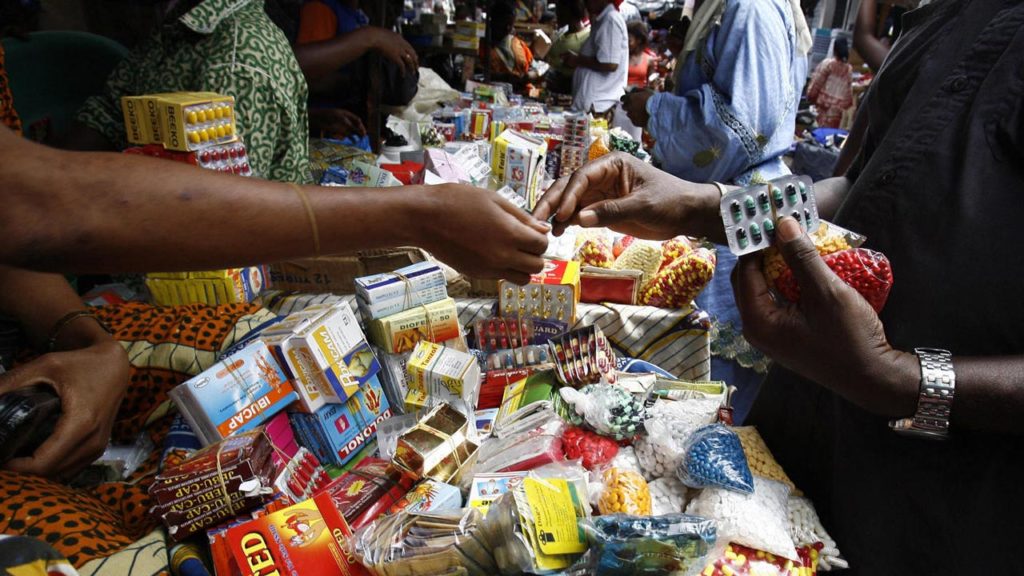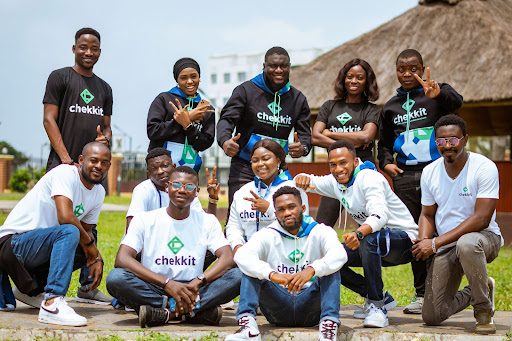Counterfeit drugs are a global menace that kill over a million people annually. The World Health Organization reported in 2017 that 10% of all medicines in low-to-middle income countries are substandard or fake and Africa accounts for 42% of all reported cases.
This issue is rife in Africa and this has led to the rise of tech startups proffering solutions to solve the problem. Chekkit, one of the startups at the forefront of saving lives by combating this pandemic, is announcing a pre-seed funding round of $500,000 to improve its technology.
Founded in 2018 by Dare Odumade, Chekkit is a Nigeria-based B2B software company providing product authentication and distribution tracking solutions to FMCGs and Pharmaceuticals. Their technology helps to prevent consumers from buying or using counterfeit products. It also provides customer engagement and direct marketing tools for its clients.
Seeing is believing, a solution built out of a terrifying experience.
Before starting Chekkit, Odumade had witnessed the horror of counterfeit drugs and how they can painfully end lives. He was present when someone died in his friend’s pharmacy in Ghana, the patient’s kidney was ruptured as a result of taking counterfeit antimalarial medicine.
After the sad and terrifying event, he gathered a small team to begin market research in Accra, they discovered that consumers are not concerned about counterfeits or the danger they pose. Notably, the effects of falsified medicine can go undetected for long periods until it has eaten deep into the user’s system.
“We then decided to develop an authentication system powered by sticker labels that verify medicines,” Odumade told TechCabal. “The stickers have encrypted USSD code to dial, QR code to scan, and aggregated and processed surveys which consumers answer during the authentication process to instantly receive a reward,”
They created a simple solution to solve a huge problem. This is how it works: after buying a medicine product or food, customers can dial on the USSD codes on the stickers or scan the QR code on the pack to get an authentication notification. When they do this they are also rewarded with airtime, think of getting rewarded for avoiding a possible ruptured kidney.
Odumade says customers get ₦100 ($0.2) worth of airtime after they verify five products with Chekkit labels and answer the survey questions.

Opportunity meets readiness, from Yaba to Kabul.
Over the past few years, Chekkit has helped protect consumers and producers in Nigeria and recently in Afghanistan from the dangers of counterfeit products by providing the consumers with a means to identify original products.
It’s not popular to hear of Nigerian startups expanding to Afghanistan, so why Afghanistan?
“The opportunity presented itself through our partnership with the Fantom (blockchain) foundation team. The Afghanistan government was urgently looking for a way to reduce the spread of counterfeit pharmaceuticals in the country, and Chekkit is the perfect solution to their problem,” Tosin Adelowo, Chekkit’s CMO told TechCabal.
Chekkit says that it has now secured over 7 million pharmaceutical products, protected over 200,000 consumers, and expanded its partnership with the Afghan government for the verification and tracking of over 200 million products in the Middle-Eastern country.
Working with top global pharmaceutical companies like Merck, Royal Star Pharma, Nabros Pharmaceutical, has contributed significantly to Chekkit’s growth. Chekkit also works with FMCGs like Indomie, Nivea, Flour Mills of Nigeria Plc, etc., helping them get closer to their consumers using its point-of-sale consumer engagement solution.
The company said in a statement that it works closely with the government and NGOs, “we deployed a Covid-19 engagement solution in partnership with the African Union and the AfricaCDC, and we are constantly working with regulatory and standardization bodies like NAFDAC, GS1, and the FCCPC to ensure that the products we use are safe and of the best standards for consumption.”
The first institutional funding after riding on grants and bootstraps since launch.
Launch Africa, Japan Strategic capital, and Blockchain Founders Fund led this $500,000 funding round. Two syndicate groups of angel investors also participated and a grant from the Orange Corners program completed the round.
“Investing in Chekkit Technologies was a no-brainer, they are tackling the scourge of fake drugs in Nigeria and across emerging markets globally,” Biola Alabi, co-leader of one of the angel syndicate groups, said about backing Chekkit.
According to the company, they are not only taking Alabi’s money. She will also be joining the company’s advisory board so they can leverage her years of experience in media and communication and industry expertise to scale. Alabi currently sits as a non-executive director at Unilever Nigeria Plc.
The startup will use the funds to improve and expand its technology and hire more innovators to join their “noble quest” so that they can achieve their projection of directly protecting up to 100 million lives across the globe.
“We are super-pumped about the future as we develop unique technology to protect the lives of millions and directly improve the act of doing business for several brands by learning about consumers in the largely informal African markets,” Odumade said in a statement.
One thing is certain, Chekkit wants to touch the whole supply chain of their client’s businesses and help them get even closer to their customers, this way. It’ll be hard for falsified products to infiltrate.
“We will be launching the first consumer intelligence software-as-a-service for consumer brands to create end-to-end loyalty campaigns, aggregate engagement data and distribute rewards in-house and with their marketing agencies for the first time ever, enabling consumers to directly interact with brands through QR and USSD shortcodes printed directly on the product package,” Odumade added.
In 5-10 years, the company plans to have impacted around a billion lives and be the leading tangible product authentication and distribution tracking technology in the world. Built out of Ghana, launched in Nigeria and now extended to Afghanistan; about 4,104 miles away from home. It’s only a matter of time before the rest of the world feels the impact of Chekkit.




















